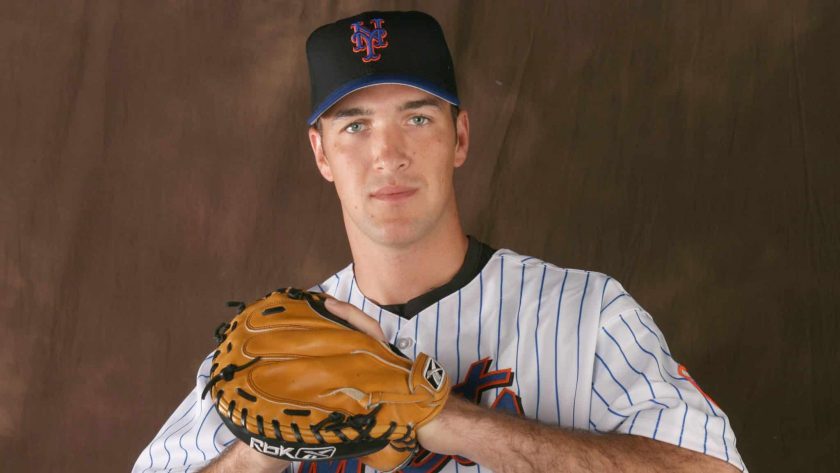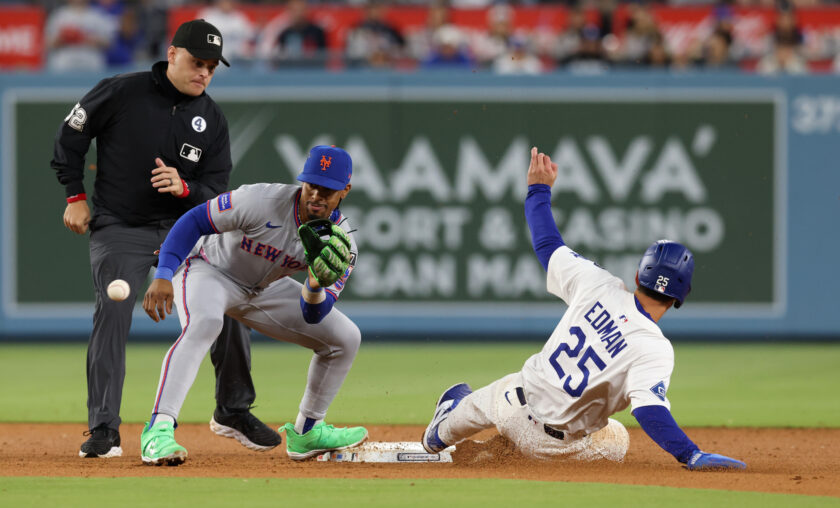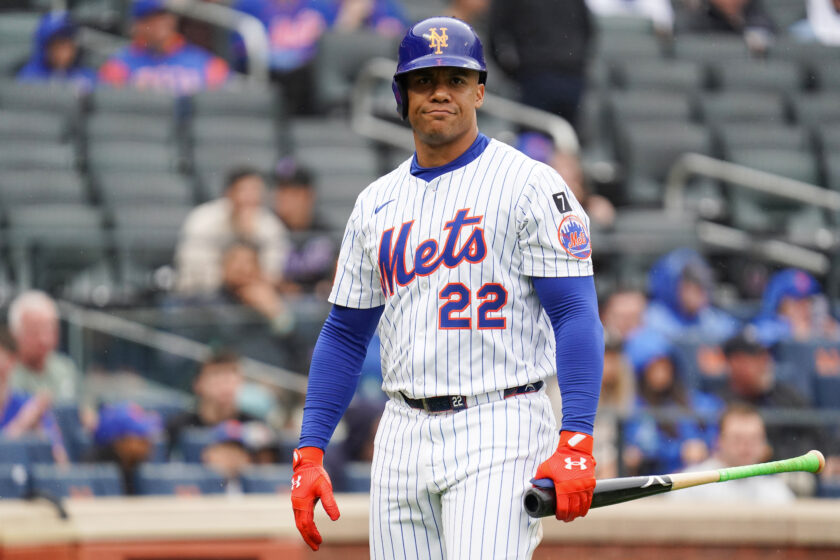Remember the New York Met: Catcher Joe Hietpas

To fill the void left by the cancellation of sporting events, let’s look back at a former New York Met’s short-lived major-league career.
Joe Hietpas never wanted to be the living embodiment of a trivia question. He never wanted to be symbolic of human tragedy. He was just a ballplayer earning his chance.
It was the final day of the 2004 season, and the New York Mets were playing the Montreal Expos at Shea Stadium in the last game the Canadian ballclub would ever play. With the Mets leading 4-1, Todd Zeile came up with two men on in the sixth inning. It was the last game of his career.
Claudio Vargas, pitching for the Expos, fell behind 3-0. The next pitch didn’t look good, but home plate umpire Angel Hernandez called it a strike.
Vargas’ next pitch was near his shoulders. Zeile stepped toward third, opening his stance to adjust for the height of the pitch, and swung. It was almost a no-doubter. Zeile’s shot bounced off the Newsday sign in left field, as he pumped his fist while rounding the bases.

It wasn’t quite the stuff of a legend, but it was close.
“It’s not Ted Williams in his final at-bat at Fenway Park,” Mets radio announcer Howie Rose said. “But it’s the Mets’ version of it.”
Now, of course, Zeile had to come out. Dramatic sensibility demanded it. So in the bottom of the eighth, with the Mets still leading 7-1, Danny Garcia pinch-hit for him. Zeile received one last ovation before leaving the field, nicely bookending his career. Manager Art Howe had Zeile’s replacement ready.
Hietpas, a September call-up at age 25, already missed some time. A batting practice injury put him on the shelf for nearly his entire time on the roster. But now he earned his chance. Hietpas wasn’t much of a hitter, as his OPS in Double-A Binghamton that year was just .702. He’d shown a hitter’s eye though, drawing 19 walks in only 43 games.
Hietpas replaced Zeile behind the plate. The first two Expos hitters in the ninth reached base, but then Bartolome Fortunato struck out two and induced a groundout. The 2004 regular season was over. Hietpas left the field…and never made it back. He never took an MLB at-bat.
It’s hard to write a tragic story about a 25-year-old man who became a successful corporate lawyer in St. Louis, Missouri. But all the building blocks are there. Hietpas stuck around until 2008, eventually switching to pitcher and posting a 2.47 ERA for St. Lucie in 2007. He never worked his way up though. Soon enough, he retired.
Hietpas made it farther than almost anyone does. He didn’t set out to become a tragic symbol of career mortality, the fleeting nature of youth, and the quickness with which baseball can pass you by. All in all, he just wanted to play. He spent eight seasons in minor league baseball, which most baseball fans would kill to do, and now he’s a successful lawyer. One way or another, he made it.
But he didn’t make it all the way. He played the field but never came back to hit. The clock kept ticking and baseball kept moving, but Hietpas couldn’t keep pace. And far too soon, he realized his time had ended. He wasn’t a kid anymore. He hung up his cleats and moved on with his life.
And now, all of a sudden, it’s been almost sixteen years since Hietpas experienced his moment in the sun. He turned 40 last year. In the blink of an eye, we’ve moved on.
All those players who were once young and promising — Hietpas, Alay Soler, Leonard DiNardo — all gone. They’re not kids anymore. One day you’re seven years old, then suddenly you’re 23, and no one your age cares about a September call-up from 2004 anymore.
Do you remember how it used to be when baseball players were Greek gods, invincible, barely human? Now they’re your age. Soon they’ll be younger, and you can’t help but wonder whether you’ve left your best days as a fan in the past. Whether you’ll ever return to where you once were. Whether the Mets falling short of a World Series appearance in 2006, when you were nine years old and could spend days worrying about nothing but baseball, was prime fandom.
But then you snap out of it. Because youth does not belong to the young, and as long as you can pull on a baseball cap, you can be a Mets fan.
Obviously, you’re not seven years old anymore. You don’t dream about strapping on the gear and playing catcher at Shea Stadium. Instead, you go to class, go to work, or go to an office on South Central Avenue in Clayton, Missouri.
But eventually, the day ends. You come home and turn on the TV, and watch a baseball game as though you’re seven years old again.
I have followed New York sports passionately for almost my entire life, since I went to Shea Stadium in 2004 and saw Jae Seo lose 8-1 to the Pirates. At journalism school, I once missed covering a Land Use Committee meeting to write about Jacob deGrom's last start of the year.






